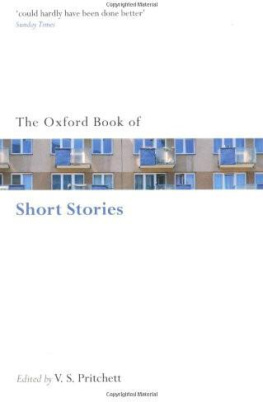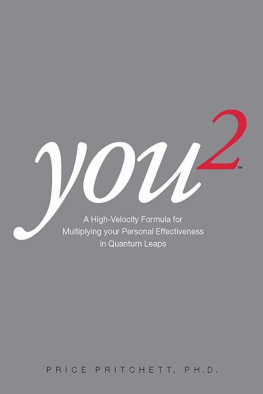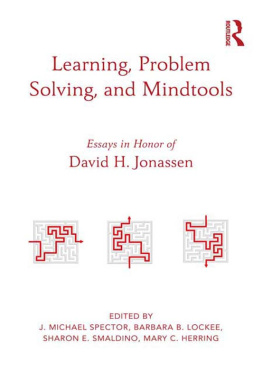IN MY GOOD BOOKS
by
V. S. PRITCHETT

To
MY WIFE
If truth is the first casualty in war, the second is the literature of the period, especially the reflective literature. Why this should be so is plain enough. A war anticipates the gradual work of fashion and brings its medical date-stamp heavily down upon every contemporary book. It may be that the stamp will not last and that some books of the last twenty years will recover; but for the moment, they are pre-war or between the warsas the saying isand there is nothing for it but to watch them being trundled off to the sick-bay.
Two kinds of literature take their place: the topical and the classics. Of these the topical is the unhappier. Nothing dates so quickly as the latest news, and its lack of perspective becomes very soon intolerable. We turn to literature not only for respite, relaxation or escape from the boredom of reality and the gnaw of suffering, but to get away from uncertainty. And certainty is in the past. There, so it seems to us, things have been settled. There we can see a whole picture. For to see something whole becomes a necessity to people like ourselves whose world has fallen to pieces. Perhaps, we think, the certainty of the past will help our minds to substantiate a faith in the kind of certainty we hope for in the future.
That is one reason for reading the great literature of the past. I say the great literature not because of its aura of cultural strenuousness, but simply because, in the past, there is only great literature. Only the great stands the racket of time and survives from generation to generation; the rest dies for lack of staying power. But there is a second and painful reason why we should prepare ourselves for reading the great and intimidating masters: very soon there may be nothing else to read. Our contemporaries have almost ceased to write and, even if they begin again, it becomes every week more doubtful whether paper will be found to print them. The works of printers are bombed, books by the thousand are burned in the shops, stocks of paper are destroyed by fire or go to the bottom of the sea. Such incidentsto use the current euphemism for catastropheempty the purses of publishers, who may be forgiven for noting that living authors are expensive and that the dead, on the contrary, are cheap. The wise reader is one who prepares himself for the awful moment, a kind of Judgment Day, when only he and the hundred best authors are left in the world and have somehow to shake down together; when he will, so to speak, be stranded in the highest society. The conditions of modern journalism obliged us for years to proclaim one book in three a masterpiece or a work of genius and then, by the time the Blitz began in the autumn of 1940, we discovered our livelihood had gone. There were no more masterpieces, there were not even any more books. We found ourselves left with the real masters. The essays in this book, most of which appeared in the New Statesman and Nation in slightly different form and length, describe the reactions of one critic, bookish but uneducated, to this unnerving situation.
I have said that one of the attractions which the great works of the past have for us is that they offer us the certainty of a completed world, a world finished and gone by. This is, of course, also one of the reasons why the classics repel us. The sentiment was well put by Huckleberry Finn, the patron saint of all lowbrows, who was not interested in the tale of Moses and the Bulrushers because I dont take no stock of dead people. He reckoned hed better light out of the Territory before Aunt Sally tried to sivilise him. I cant stand it. I been there before. Even when we can stand a little more civilisation than Huck Finn cared for, we are likely to ask why on earth, in the twentieth century, we should read Gil Blas, The Ring and the Book or a novel by Benjamin Constant? The answer is that when we make our way through the sometimes old-fashioned curtain of words into the matter of the classics, we find that their serenity and certainty are misleading. The past is not serene. It is turbulent, upside down and unfinished. When we look into the lives of the authors of the great wise (or unwise) books, when we glance at the erratic outline of their times, we find that those men and those times were as uncertain as we are, and the picture they saw was by no means complete to their eyes. They livedour hackneyed phrase is repeated throughout the history of literaturein a period of transition. Every one of them had one foot in the old, the other in the new. If we pick up Gullivers Travels again and, making an effort of imagination, pause to regard it as the new book it once was, we can feel it come to life in our hands, raw, unfinished, questioning and restless with its own disturbance. There is Swift at the beginning of modern science, here are we nearly two hundred years later, caught in all the consequences, some of which Swift foresaw. And the Gullivers Travels we read will not be the childish abridgment of Lilliput nor the savage tale of the Houyhnhnms only; this time the episode on the island of Laputa, for years considered boring, and generally skipped, will stand out with fresh excitement and meaning.
What is true of Swift is true of most other classics, when we have rid ourselves of the notion that books are immaculately conceived or inspired and come down from heaven into the heads of writers. Nothing has really damned the classics so thoroughly in the mind of the ordinary reader as the idea that they are inspired. A work of art is an act of co-operation, often of reluctant co-operation like an awkward marriage, between an author and the kind of society he lives in. When we know something of the character of this aggravating partner, that which was once stiff and monumental becomes fluid and alive.
The most satisfying classics at present are those in which the cries of an age are like echoes of our own. In all the literature of the French Revolution, through the Napoleonic wars to the Reform, we find books which seem to be describing our own times. At no other period has Napoleonic literature from the novel of Benjamin Constant to the works of writers as diverse as Erckmann-Chatrian or Cobbett, had the freshness, the significance and pleasure we find in it now. Everything is there from Bloomsbury of the twenties to the recriminations of the thirties and the fighting of this war. We hold up the crystal sphere; we see ourselves in miniature reflection and, perhaps, if our minds are not too literal, we may also see our future. The time of the Civil War offers vaguer but still apposite comparisons. We look back from Hemingway to Defoe, from modern non-attachment to the dynamic quietism of George Fox. In the middle of the eighteenth century, Fielding draws a Fuehrer. I do not suggest that such comparisons will always be found in these essays; but in the numerous cases of wide difference, in Le Sage, Synge or Zola, to take random examples, the differences take on meaning when we turn from literary criticism to a consideration of the social background of the authors. Our pleasure in literature is increased by knowing that a book is the fruit of living in a certain way. The mind of Browning is boring until we consider it as one of the manifestations of the violent Victorian unrest, and a period piece like The Diary of a Nobody ceases to die of its own triviality when it is related to its period.
I am an unsystematic reader and the subjects of these essays have been chosen at random. They make no case. The accident of finding an author handy on the shelf has usually decided me. I owe an especial debt to Mr. Raymond Mortimer for his many suggestions. At the end of the book the reader will find a note on where he can pick up the works discussed.






